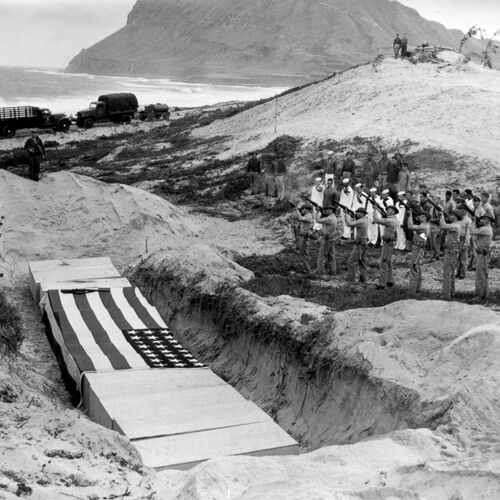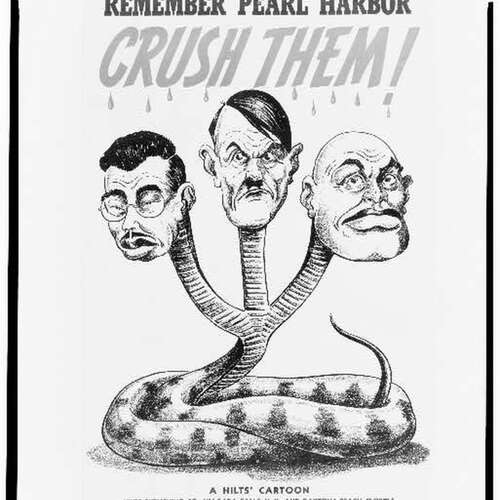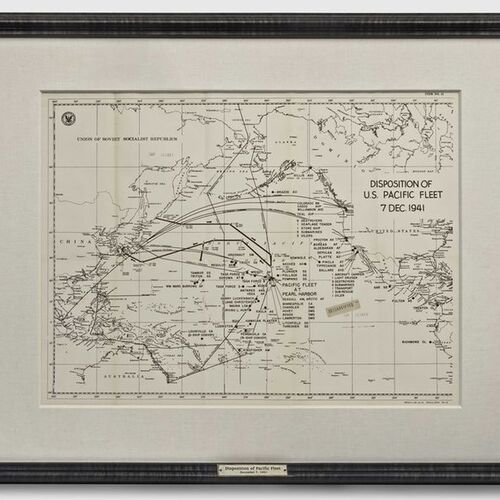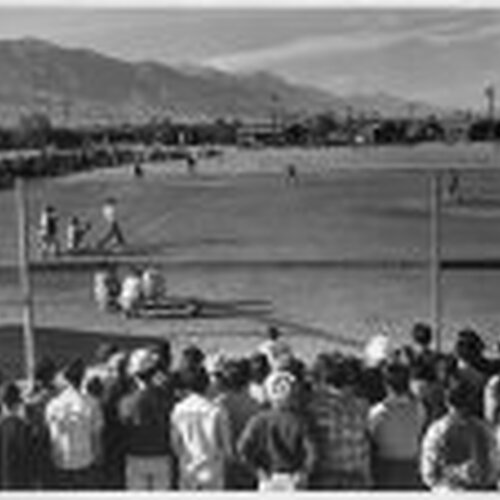The Aftermath
These strikes were well timed and coordinated by the Japanese navy as they struck at a time when the response from the US Pacific Fleet would be delayed due to ship maitenance in Pearl Harbor as well as far-stretching patrol routes. It was a swift and devastating moment that transpired within the confines of an hour, leaving the Pearl Harbor naval base decimated, lives destroyed, with signifcant financial and equiptment losses for the US Military.
The attack stunned the country and forced the United States to enter a conflict that it had been able to avoid for many years. President Roosevelt requested Congress to declare war on Japan the day following the attack. Declaring December 7th as a "date which shall live in infamy," he warned the United States Congress that the country was seriously threatened. Representative Jeannette Rankin of Montana was the only member of Congress to vote against the proclamation. Rankin, the first female member of Congress and a pacifist, had also voted against the United States' entry into World War I.
Germany and Italy kept their word to Japan on December 11 and declared war on the United States, which the United States promptly returned. The war that ensued would decimate most of Europe and Japan and result in 15 million combat deaths, 25 million combat injuries, and at least 45 million civilian deaths. In the end, the conflict would claim the lives of 416,800 American service personnel.
Pearl Harbor left much more horrific legacy. The internment of around 120,000 persons of Japanese origin in the continental United States, including 70,000 Americans, was justified by an act of the Japanese military. This action by the US government opened up destructive avenues for racial hierarchies to be established and impact the lives of Japanese-Americans for decades to come. As pictured to the left in the gallery these interment camps were highly isolated and within them social groups were established, pratically creating new lives for those thrown into the camps. Additionally, it permanently ended American isolationism and neutrality prior to 1941.
The greatest military force in history entered World War II with the attack on Pearl Harbor. It was a watershed moment for the country as well. A people were forever changed by the events that transpired on December 7th, 1941 and those of us who live on today have likely been influenced by these actions either indirectly or directly in a significant way.



